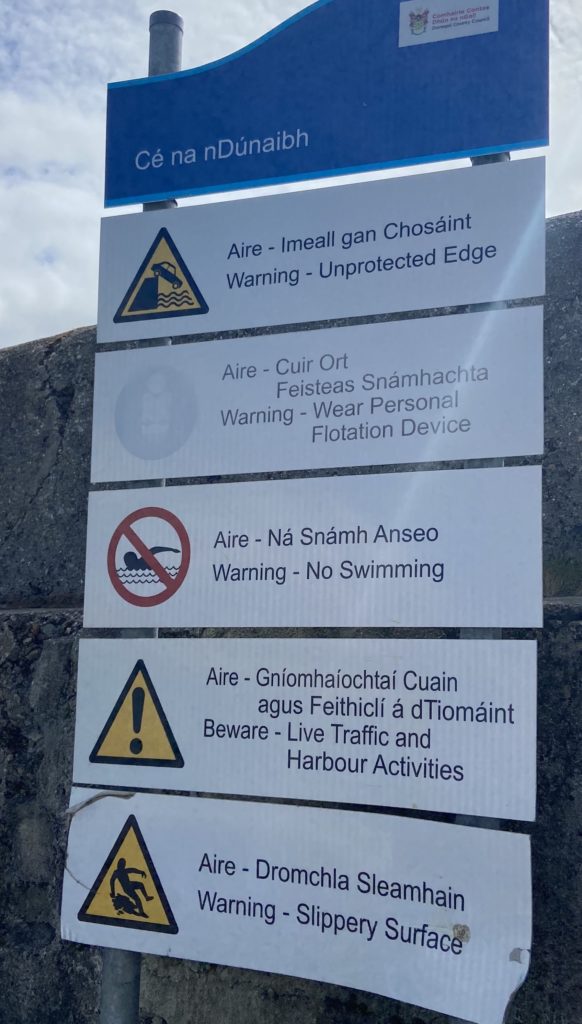When learning a minority language such as Irish, it is easy to focus on how English has influenced it. A huge amount of vocabulary for new words, especially technology, is basically English transliterations- e.g. fón=phone. What has been educational about staying in Ireland for a month, however, is seeing how the Irish I have been studying effects the way Irish people speak Hiberno-English. There are two phrases that just about everybody uses that are wonderful examples of how Irish influences Irish people’s English, even if they don’t speak Irish themselves.
One of my favorite phrases in Irish is “tá Gaeilge agam,” which is how you say you speak Irish. However, if one were to directly translate this phrase it means I have Irish. It is beautiful in a way that Irish isn’t just something you speak, but something that is a part of you- something you possess. When Irish people are referring to what languages they speak in English, they will use this same structure, saying “I have Irish” or “I have French.” I don’t think I will use this phrase in English when I’m talking about being able to speak foreign languages, but I will use it when talking about Irish. I like the idea that Irish is uniquely something that’s a part of you, not a skill you have.
Another great example of Hiberno-English being directly pulled from Irish phraseology is the expression “he was giving out,” which means that he is scolding or chastising. This too is a directly translation of “ag tabhairt amach,” which is to be scolding. This is quite a funny expression to me because unless somebody told you, it would be pretty hard to guess the meaning of this expression. For this reason I don’t think I will use this expression simply because most people in the America would be pretty confused if I tried using this in English.
In a country like Ireland where most people can’t speak their own country’s first and native language, it’s amazing to see how Irish still permeates the culture and thought.
